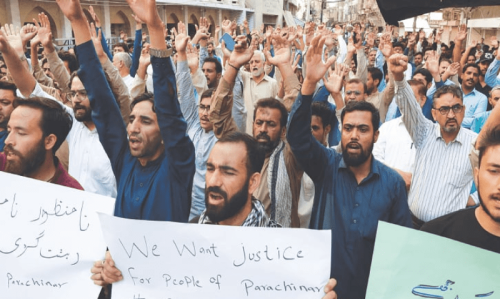SCIENTISTS had been warning us for decades that the environment has been changing for the worse, yet we hardly paid them any heed. However, as another destructive monsoon season has now made clear, climate change cannot continue to be taken lightly and will need urgent policy-level interventions to counter the devastation changing weather patterns are leaving in their wake. Apocalyptic scenes from those places across Pakistan that saw unseasonably high rainfall this summer must serve as a wake-up call for both government policymakers as well as the executive, which is tasked with monitoring the execution of the government’s policies on the ground. Continued neglect will come at the cost of economic losses and untold suffering, as we have seen this year, with the unabated loss of life and disruptions caused by destruction of civil infrastructure.
As soon as the season is over, both national and provincial governments will need to work in overdrive to restore communication linkages to places cut off due to flooding. However, not only must they attempt to fix the damage that has been done, they should also plan ahead so that next year and the years to come do not catch us unprepared. Climate scientists should be engaged to determine what lessons can be learnt from the changing weather patterns and how those can be used to prepare better for the future. Similarly, the country needs to tap its best civil engineers to design infrastructure that can both withstand and respond to the wild swings in weather patterns we seem to be experiencing with increasing frequency in recent years. Planting trees and other environmental interventions are a good step, but they are merely a band-aid on the damage already caused to the global environment by decades of unchecked industrialisation and reckless greed. It is time to adapt to new realities with solutions that are indigenous and present our best responses to the coming environmental challenges. This will be, in many ways, a fight for our survival and a matter of national security. It ought to be treated as such. Guns, tanks, bombs and bullets are unlikely to be of much help if environmental devastation ends up robbing us of basic necessities like food, shelter and water. The country needs to plan and prioritise its budget allocations in response to these emergent challenges. We may not be in a position to afford any further delay.
Published in Dawn, July 28th, 2022











































